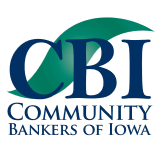On Monday the General Assembly did not meet in honor of the Martin Luther King holiday and, thus, it was a short legislative week with relatively little action (short of bill introductions and the start of subcommittee work). What did get underway in earnest was the legislative budget process as the various joint budget subcommittees began their work of developing the legislative response to Governor Branstad’s proposed budget.
Given the expectation of a short 2016 Session and the relatively limited new money available for spending, the budget process is likely to be the primary focal point of the entire session. To that end, here are some of the significant features of the FY 17 budget proposed by Governor Branstad last week:
Highlights of Governor Branstad’s Proposed FY 17 Budget
Estimated revenue for FY 16 and FY 17 (top three revenue sources):
- Personal Income Tax: $4.50 billion (FY16), $4.71 billion (FY17)
- Sales / Use Tax: $2.84 billion (FY16), $2.91 billion (FY17)
- Corporate Income Tax: $500 million (FY16), $495 million (FY17)
Ending balance projections:
- FY 16, $172.5 million (out of a $7.24 billion budget)
- FY 17, $112.0 million (out of a $7.41 billion budget)
Cash Reserve and Economic Emergency Fund projections:
- FY 16, $718.7 million (nearly 10% of the total budget)
- FY 17, $737.6 million (nearly 10% of the total budget)
While economic growth in the state remains positive, it has slowed and that means there is little additional revenue available for new or expanded programs. Yet, despite the tightening fiscal situation, the state maintains relatively healthy ending balances and extremely robust reserve accounts (meaning the state is well positioned to meet its obligations under most conditions).
Iowa Last Remaining Hurdle for Dakota Access Pipeline
This week the North Dakota Public Service Commission gave its approval to the proposed Dakota Access Pipeline – joining South Dakota and Illinois which both had approved of the proposed project and route in late 2015.
The final hurdle in this process is now in the hands of the Iowa Utility Board. The IUB has scheduled up to four days of public Board deliberations on February 8 through 11 to discuss the proposed project. This suggests a decision by the IUB before the end of February.
Today the Iowa Capitol was the scene for two competing groups regarding the fate of the proposed 1,100-mile pipeline. Iowa Citizens for Community Improvement (a hard left activist group that opposes most development projects in Iowa as well as production animal agriculture) led an anti-pipeline rally. Leading the charge for the pro-pipeline contingent were hundreds of Iowa building trade union members who support this project and the thousands of union jobs it will create as it is constructed across the state.
View the Legislative Bill Tracker.

 RSS Feed
RSS Feed